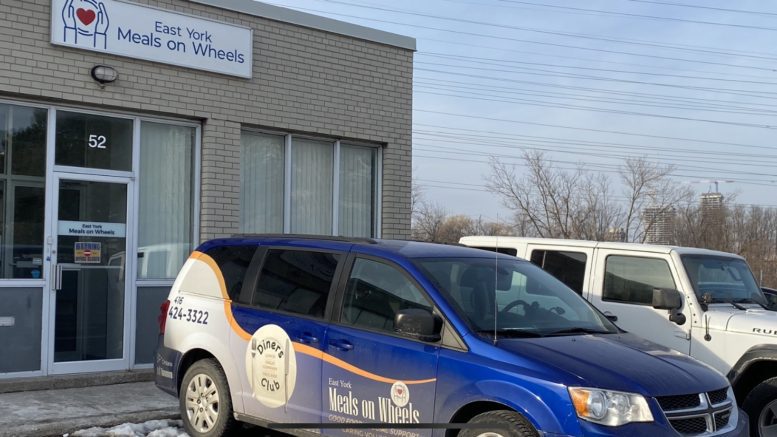During a snowstorm, some might stay home with a cosy, home-cooked meal, while others may try and order in.
But, what about people who depend on support services to deliver them food? How do they get their meals if the weather is unbearable?
On Jan. 17, Toronto was hit with a massive snowstorm that made driving close to impossible and created a major issue for one such service.
East York Meals on Wheels is a nonprofit community service agency delivering meals to East York seniors, that was founded in 1969. It requires vehicles driven by volunteers to deliver food to its clients.
“Unfortunately, our volunteers were not able to travel to our location due to the conditions of the roads,” said Graeme Hewson, program and administrative assistant at East York Meals on Wheels.
“All volunteers let us know well in advance of their scheduled shift, so that we could call our clients to let them know that the meal delivery was cancelled for the day.”
Many people had to rely on other ways to get food that day as many people were stranded on the roads.
“Our team was able to touch base with the majority of our clients via telephone, as well as post on our website and various social media channels to update them on the cancellation of their meals for the day,” Hewson said. “On this call, we were also able to confirm that they had a meal available for the day and support from their family, friends or [Personal Support Worker].”
“For those vulnerable clients that rely solely on our services, members of our team were able to make it to the office and deliver those meals despite the difficult conditions,” Hewson said.
In 2021, EYMOW delivered 25,372 hot and frozen meals to 226 clients, and helped more than 300 East York residents overall, according to its website.
Pandemic shifts support approach
On top of the snowstorm, the COVID-19 pandemic has forced advocacy groups to come up with new ways to help people.
“The safety of our volunteers and clients is of upmost importance to our organization,” Hewson said. “When answering the door for clients, the volunteers are instructed to stand back and allow for a two-metre distance between them and the client.”
FoodShare is an organization that also tries to help people affected by poverty and food instability. It has also been dealing with COVID-19 considerations.
“One of the biggest things that FoodShare did during the pandemic was introduce a program called The Emergency Goodfood Box, and that was basically what it sounds like: delivering boxes of produce to anyone who essentially needed it,” said Moe Pramanick, Community Mobilization coordinator for FoodShare.
“We partnered with a lot of different organizations on that, I think over 90 organizations to date on distributing food boxes around the city.”
FoodShare helped out 366, 270 people with their services in 2020.
There were 1.45 million visits to food banks last year. This is a 47% increase from last year, according to the Daily Bread Food Bank.

